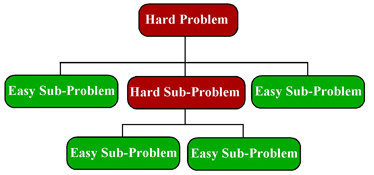Goals give a direction, energy, power and a purpose, to everything that you do. Without them you are just aimlessly jumping from task to task and that can only lead to overwhelm, dissatisfaction and lack of success.
Be as much Specific as possible
You hear people say, “I want a bigger house. I want a new car. I want to be thinner, I want to be happier, I want my kids to be better.” – That’s not a goal. That’s a desire. How do you transition from a desire to a goal? You make it specific. What car do you want? What make is it? How much does it cost? What house do you want? Where is it? What is it overlooking? Is it overlooking the ocean, is it overlooking a garden? How much do you want to lose in terms of weight? Is it 30 pounds, 50 pounds, 60 pounds? Make it specific. That’s how you go from a desire to a goal: making it very specific.
.jpg)
Set Goals That Motivate You
When you set goals for yourself, it is important that they motivate you: this means making sure that they are important to you, and that there is value in achieving them. If you have little interest in the outcome, or they are irrelevant given the larger picture, then the chances of you putting in the work to make them happen are slim. Motivation is key to achieving goals.
Set goals that relate to the high priorities in your life. Without this type of focus, you can end up with far too many goals, leaving you too little time to devote to each one. Goal achievement requires commitment, so to maximize the likelihood of success, you need to feel a sense of urgency and have an “I must do this” attitude. When you don’t have this, you risk putting off what you need to do to make the goal a reality. This in turn leaves you feeling disappointed and frustrated with yourself, both of which are de-motivating. And you can end up in a very destructive “I can’t do anything or be successful at anything” frame of mind.

Imagine your future
Think about your ideal future. What does it look like? Ask yourself questions that will help you get to a detailed picture. For example, imagine you are trying to decide on a long-term career. Here are some questions you might ask:
- What time do you want to wake up every morning?
- Where do you want to live? The city? A rural area? A foreign country?
- Who will be there when you wake up? If it’s important to you have to have a family? If so, a job that requires a lot of long trips out of town might not be the best choice.
- How much money do you want to make?
- The answers to these questions may not be enough to point you toward a single dream job, by they can certainly help you rule some out.

Consider The Journey
A goal is your destination. The journey is the process that gets you there. Sometimes you might set a goal to achieve something, but then you completely disregard the journey – all the steps that you need to take to get there. These are the actual things that you need to be doing every day, or every week, or every month. These are the habits you need to incorporate into your routine. If the journey is something you don’t enjoy, then chances are, you’re not going to enjoy the achievement of the goal.
Let’s say that you want to start your own business. You have a nice idea and now you want to make it into a business. Your goal is to grow your business to let’s say $100,000 of revenue each year (specific) in 24 months (deadline).
But you hate marketing. You’re not a salesperson and you loathe the “whole marketing thing”. That is a problem, a major one. If your goal is to grow your business, the journey to achieve it involves a lot of marketing. There is simply no way around it. And if you wake up every day and you don’t want to get out of bed because your day is filled with marketing and sales activities, even if you achieve your goal, 24 months from now, you would’ve hated the journey so much that you might not enjoy your achievement at all. It might not be worth it for you. This might be a fake goal.
The journey is something that you’ll be doing every day, week and month. If you don’t enjoy the process, if the dissatisfaction from your daily activities outweighs the satisfaction of achieving your goal, you have a fake goal on your hands.
If you set a goal and you also enjoy the process that you will get your there, you have a real goal. Go get them! Go now!

Thank those sites for inspiration and amazing content they are creating! http://blog.highperformancelifestyle.net, www.mindtools.com and www.wikihow.com





































